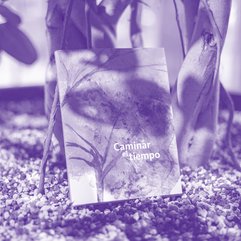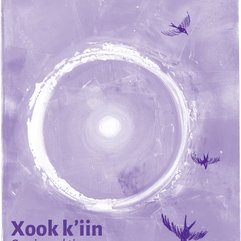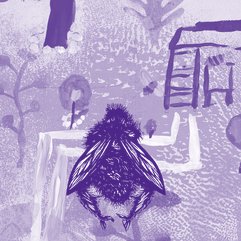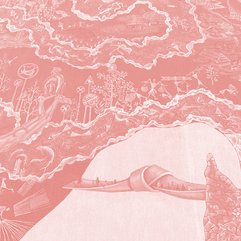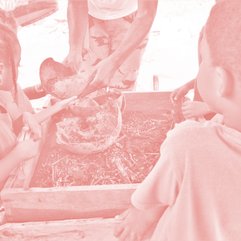Spore Hosts: Resisting toxic agriculture in the Southern Cone
Panel discussion moderated by the Heinrich Böll Foundation (Germany)
17.30-19.30
Save the Date
all ages welcome
in Spanish/in English

While agribusiness corporations claim that agro-industrial intensification - including the large-scale cultivation of genetically modified seeds resistant to toxic pesticides - is necessary to 'feed the world', the harsh reality reveals a different narrative.
Soybean cultivation, driven by this intensification, is feeding its ever-increasing demand for land into the territories of indigenous, rural and peasant communities, paradoxically impacting their access to food and poisoning their environment. These lands, situated in some of the world’s most vital ecosystems in the Latin American Southern Cone — including the Cerrado, Gran Chaco, Chiquitania, and the Atlantic Forest — are being systematically destroyed to make way to transgenic monocultures. Affected communities who defend their lands and rights are criminalized and drawn into socio-territorial conflicts often leaving them in a situation of high vulnerability.
Four multinational agrochemical corporations dominate the global market for pesticides, fertilizers and genetically modified seeds: Bayer, BASF, Syngenta and Corteva. Their hegemonic presence in the market is exercised particularly in countries like Argentina, Brazil, Paraguay, and Bolivia which rank among the world's ten largest soybean producers, with over sixty percent of their arable land devoted to cultivating glyphosate-resistant soy seeds. These businesses have profited extensively at the expense of human rights and the environment, mainly in the Global South, thus there is an impelling need to openly confront their accountability amid a landscape marked by glaring double standards.


Representatives from civil society organizations from the Southern Cone and Germany convene to exchange insights and discuss the repercussions of this agricultural model; the legal and political instruments to protect the rights of those affected, including nature; and their demands for agribusiness corporations to cease their contribution to these adverse impacts and restore the space they've taken away. Only in this way a toxic-free and human rights based agriculture can begin to emerge.
With representatives from BASE IS Investigaciones Sociales (Paraguay); CELS- Centro de Estudios Sociales y Legales (Argentina); Fundación Tierra (Bolivia); Terra de Direitos (Brazil); European Center for Constitutional and Human Rights - ECCHR (Germany); Misereor (Germany)
Moderated by the Heinrich Böll Stiftung (Germany)
Additional Information about the represented organisations:
ECCHR on X (Twitter) | ECCHR on Instagram
CELS on X (Twitter) | CELS on Instagram
Base IS on X (Twitter) | Base IS on Instagram
Fundación Tierra on X (Twitter) | Fundación Tierra on Instagram
Terra de Direitos on X (Twitter) | Terra de Direitos on Instagram
Misereor on X (Twitter) | Misereor on Instagram
Heinrich Böll Foundation on X (Twitter) | Heinrich Böll Foundation on Instagram




